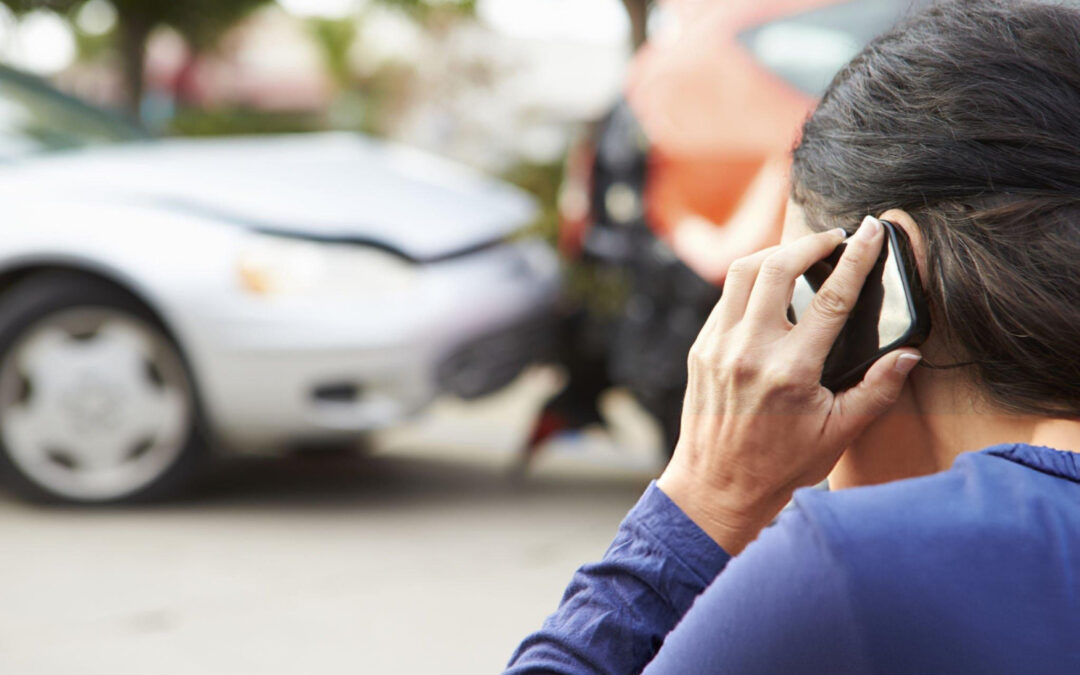What Should You Do if You’re Rear-Ended While Stopped in Houston?
Rear-end collisions happen frequently, especially in busy cities like Houston. When you’re rear-ended while stopped in Houston, Texas, it’s natural to feel shaken and uncertain about what to do next. Understanding your rights and the legal options available can make all the difference. In Texas, drivers have specific responsibilities when these accidents occur, and knowing them can help you protect your interests and ensure you receive any compensation you may be entitled to.
Key Takeaways:
- In Texas, the driver who rear-ends another vehicle is usually at fault, but there are exceptions, like sudden stops or faulty brake lights on the front car. When the situation is complicated, consulting a lawyer may be wise, especially if there are injuries, disputed fault, or insurance challenges. A lawyer can help ensure you receive fair compensation and explore all options for recovery.
- After being rear-ended while stopped, it’s important to check for injuries, move to a safe area, and call the police for a report. Documenting the scene by taking photos, gathering witness information, and exchanging contact details with the other driver can help support any claim you file. This evidence will be valuable when dealing with insurance companies or possible legal issues.
- Keeping detailed records is essential after a rear-end collision. Track any injury symptoms and medical visits, as some injuries may develop later. Save all receipts and records for vehicle repairs to support your claim. Request copies of the police report and any communication with your insurance provider, as these documents may be useful if you need to prove your case.
Immediate Steps to Take After a Rear-End Collision
If you’re rear-ended while stopped, taking the right steps can make a significant difference in handling what happens next. Here’s what to do:
- Check for Injuries: Begin by assessing yourself and any passengers for possible injuries. Some injuries, like whiplash or back pain, may not be immediately noticeable due to shock, so it’s important to be attentive to any discomfort. If anyone is seriously hurt, call emergency services immediately to get medical help on the scene.
- Move to Safety: If your car is drivable and you’re not injured, try to move it to a safe spot, like the road’s shoulder, to prevent further incidents. Staying on the road can increase the risk of additional collisions, especially if other drivers are unaware of the accident ahead.
- Call the Police: Contacting the police is crucial, even if the damage seems minimal. The police can document the accident and create a report that includes details of the incident. This report can serve as official evidence when dealing with insurance claims or potential legal action.
- Exchange Information: Exchange names, contact details, and insurance information with the other driver. Write down the make, model, and license plate number of their vehicle. Additionally, capture photos of the accident scene, vehicle positions, visible damage, and any skid marks, if possible. This documentation can help establish fault and provide evidence during claims.
Gathering Evidence for Your Claim
Proper documentation after a rear-end collision goes beyond capturing the immediate scene. Building a thorough record can support your claim and strengthen your case if you need to pursue legal action.
Track Injury Symptoms and Medical Care
If you experience pain or injuries after the accident, keep a detailed log of your symptoms, medical appointments, and any treatments received. Even minor injuries can develop into more significant issues over time, so it’s essential to track your health for both insurance claims and potential legal claims.
Document Repair Costs and Vehicle Damage
In addition to initial photos, keep all estimates, repair invoices, and receipts for vehicle repairs. This documentation shows the extent of the damages and can be used to justify compensation for repair costs.
Collect Police and Insurance Records
Request copies of the police report and any correspondence with your insurance provider regarding the incident. The police report provides an official account of the accident, and insurance records will show the timeline of your claim, which may be important for legal reasons.
Who’s at Fault in a Rear-End Collision in Texas?
In Texas, the driver who rear-ends another vehicle is usually the one considered at fault. The idea is simple: every driver should leave enough space to stop safely if traffic suddenly slows down. So, if someone rear-ends you while you’re stopped, they’re typically responsible for the damages.
But there are times when things aren’t so clear-cut. For instance, if the driver in front stops suddenly without a good reason or has brake lights that don’t work, they may share some of the blame. Texas uses a “comparative fault” approach, which means both drivers might share responsibility depending on the details. If the driver in front is partly at fault, their compensation could be adjusted based on their role in the accident.
Having a basic understanding of these rules can make it easier to handle the situation if you’re involved in a rear-end collision. Knowing how Texas liability works gives you a clearer path forward as you deal with claims or insurance.
Filing an Insurance Claim After a Rear-End Collision
When you’re rear-ended, filing an insurance claim is a critical step toward recovering any losses, such as vehicle repairs and medical expenses. Start by contacting your insurance provider to report the accident and provide the details you documented at the scene, like photos, the police report, and contact information for any witnesses.
Once the claim is filed, an insurance adjuster will likely assess the damage to determine the extent of coverage and estimate repair costs. If the other driver is clearly at fault, you can file a claim against their insurance, known as a third-party claim, to seek compensation for damages. However, if you have additional coverage like uninsured motorist protection, your own policy may help cover expenses if the at-fault driver lacks adequate insurance.
Throughout this process, keep copies of all communication with the insurance company and any repair or medical invoices. Staying organized and knowing what to expect can help reduce the stress involved in the claims process and ensure that you’re fully prepared if any issues arise.
Knowing When to Seek Legal Help
After a rear-end collision, not every situation requires legal help, but there are times when consulting an attorney can be beneficial. If you’re dealing with serious injuries, costly medical bills, or significant vehicle damage, an attorney can help ensure that you’re fairly compensated. Additionally, if fault is disputed, or if the insurance company is challenging your claim, a Houston rear-end accident lawyer’s guidance can be invaluable in protecting your rights and navigating the claims process.
Legal assistance may also be helpful if the other driver’s insurance coverage isn’t enough to cover your expenses or if you face any issues with an uninsured motorist. An experienced attorney can help you explore all available options for recovery, including filing a lawsuit if necessary.
While not every accident requires a lawyer, knowing when to seek legal help can provide peace of mind and make the claims process smoother, especially when dealing with complex cases.
Protect Your Rights After a Rear-End Collision
Experiencing a rear-ended while stopped in Houston, Texas incident can be overwhelming, but knowing your rights and taking the right steps can make a significant difference in securing the support you need. If you’re dealing with a complex insurance claim or need legal guidance on what to do next, reach out to McKinnon Law. We can help you understand your options and work toward fair compensation for your injuries and damages.
In addition to handling rear-end collisions, we offer legal representation across a range of personal injury cases, including 18-wheeler truck accidents, car accidents, premises liability, and more. If you’ve been injured in any type of accident, we’re equipped to provide the knowledge and support necessary to protect your rights and pursue your case.
For personalized advice and dedicated representation, contact us at McKinnon Law today to discuss your case and learn how we can help.

